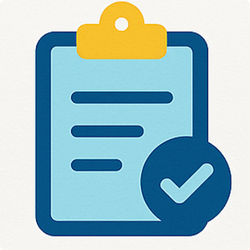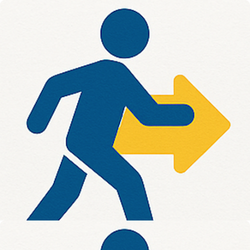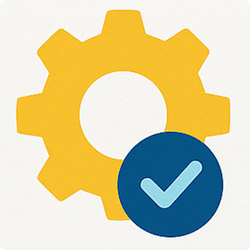Recovery: Understanding the Stages of Change
- Michael McEvoy
- Jul 12, 2025
- 2 min read
Updated: Sep 13, 2025

Change Is a Journey that Unfolds Step by Step
Recovery moves through phases. Each step builds on the one before it. Whether you are just beginning to think about change or already taking action, recognizing your current stage of change brings clarity and confidence.
The Stages of Change model, also known as the Transtheoretical Model, outlines five stages that many people experience in recovery. These stages help make sense of your experience. They show that progress happens through reflection, commitment, and growth.
Recovery coaches walk beside you through each stage. They offer guidance, encouragement, and tools that align with your strengths and values.

Stage 1: Precontemplation
At this stage, a person may not recognize the need for change or may feel uncertain about recovery. There may be fear, confusion, or overwhelm.
How a coach supports you: A recovery coach listens with empathy. They meet you with respect and plant seeds of hope. Every conversation creates space for reflection.

Stage 2: Contemplation
This stage includes increased awareness. You may begin to recognize that your current path no longer feels sustainable. You may feel uncertain, but curious.
How a coach supports you: A coach helps you sort through your thoughts and emotions. They ask meaningful questions and help you explore what healing could look like for you.

Stage 3: Preparation
You start identifying steps forward. You may gather information, talk with supportive people, or create goals. You begin to feel more ready.
How a coach supports you: Your coach helps you make a plan that feels realistic and grounded. They support you in finding treatment, exploring pathways, or outlining goals that matter to you.

Stage 4: Action
You begin to take clear steps toward recovery. You might start treatment, build recovery capital, attend support groups, reduce or stop substance use, or make lifestyle changes.
How a coach supports you: A recovery coach offers structure, motivation, and daily support. They help you build routines, celebrate progress, and stay focused when challenges arise.

Stage 5: Maintenance — “I’m living my recovery”
You have created meaningful changes and are working to sustain them. You may still face difficult moments, but you have the tools, insight, and momentum to overcome them.
How a coach supports you: Your coach continues to walk with you as you build a life filled with purpose. They help you deepen your self-awareness, set new goals, and stay grounded in your recovery values.
Supporting Your Change in Western Connecticut
Healing takes time. Every stage holds value. Wherever you are in your journey, you have already taken a brave step by considering change. You do not have to navigate this path alone.
RiseWell Recovery offers professional recovery coaching, sober companionship, interventions, and sober transportation across Western Connecticut, including Fairfield, Litchfield, Hartford, New Haven, and Middlesex counties. RiseWell Recovery Coaches are ready to walk beside you. Reach out today and explore where you are and where you want to go.



